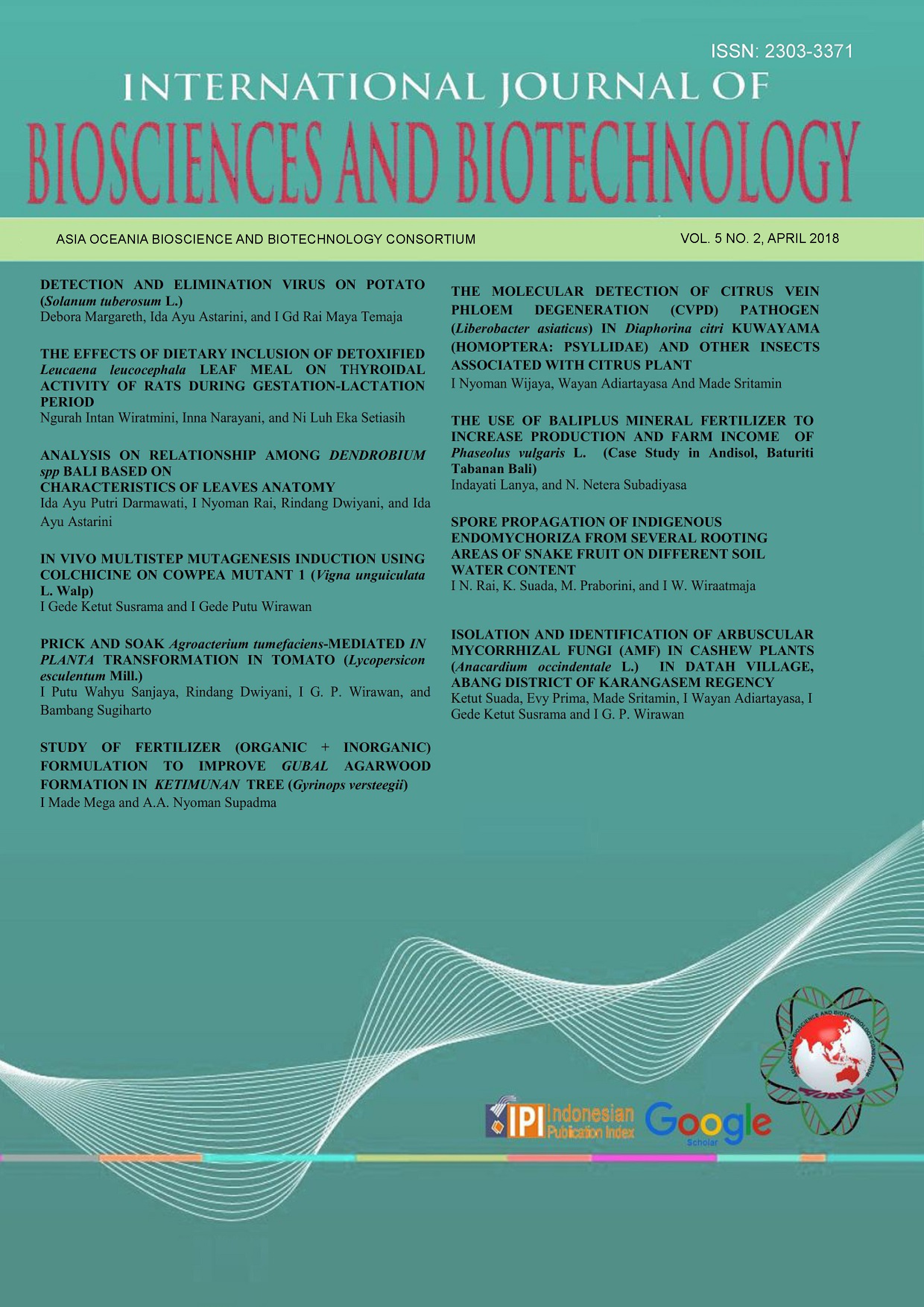THE EFFECTS OF DIETARY INCLUSION OF DETOXIFIED Leucaena leucocephala LEAF MEAL ON THYROIDAL ACTIVITY OF RATS DURING GESTATION-LACTATION PERIOD
Abstract
Leucaena leucocephala provides the highest amount of proteins compared to other greens. However, its use is restricted due to the content of mimosine, an antinutrition non-protein amino acid known to be toxic to animals. This study aimed to observe the effect of administration of more than 10% of processed Leucaena leucocephala leaf meal to the level of T3, T4 and the thyroid histopathology. In this study, Leucaena leucocephala leaves were soaked in distilled water for 12 hours. The processed of Leucaena leucocephala leaf meal was made into pellets containing 0%, 7.5%, 15%, and 22.5% leaf meal of total feeds respectively, and was fed to the rats during pregnancy and lactation. The level of triiodothyronine (T3) and thyroxine (T4), and the thyroid histological features were the parameters observed. The collected data were statistically analyzed by SPSS 20.0 for Windows using One-way ANOVA followed by Duncan Multiple Range Test to observe any significant difference among the 4 treatment groups (?=5%). Meanwhile, the presence of hyperplastic cells and follicle lumens filled with vesicles and colloids was descriptively analyzed by means of available literatures. The analysis of T3 and T4 level revealed that there was no any significant difference between the control and treatment groups. The epithelial cells of thyroid follicles in the treatment groups of P1, P2 and P3 showed hyperplasia and were detached from their respective basal membranes.






